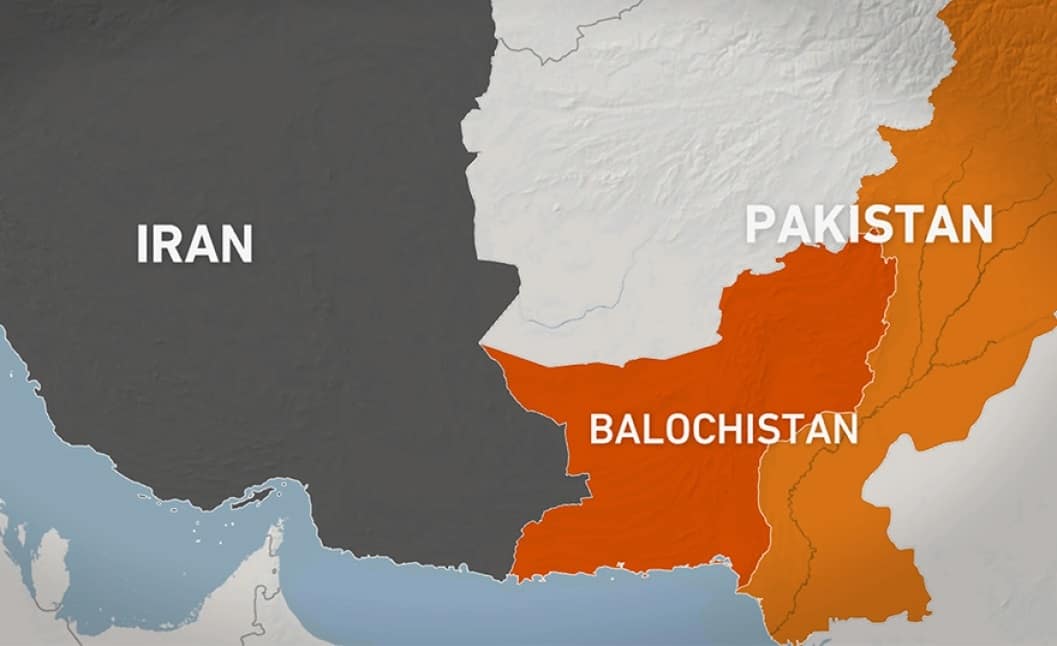By Sheraz Wahid
The forced redistribution of power has again become visible in the federal city of Islamabad, where the major political parties are trying to stay in power as long as possible. These power struggles have led to political instability and serious disruptions to Pakistan’s economy and security.

Recently Pakistan has been on the brink of default, whose fault is it, the political parties or cross-border inclusion? Moreover, even though Pakistan has escaped default, it still suffers from massive political instability and security problems throughout the country, inflation rates are steadily rising, and terrorism has again intensified in the developing parts of Pakistan.
Balochistan, the largest federated unit in Pakistan, has faced the above problems for years, governments have come and gone, but the grievances and living standards of the people of Balochistan have worsened. Repeated failures of different administrations have failed to reduce poverty and illiteracy rates, as well as tensions between Balochistan’s insurgents and the federal government, which again has failed to put an end to the growing tensions among the masses.

Recently, law enforcement agencies launched a clandestine operation against one of the “grassroots militants” named Ghulam Imran Ilias, who worked for the “Baloch National Army”, described as a “high-value target” with suspected ties to hostile intelligence agencies involved against peace with Pakistan.
The information about the detainee was released by Pakistan’s military media wing “Inter Services Public Relations,” according to which the operation against the captured militant had been planned months ago and successfully completed.
Moreover, the Baloch insurgents should understand some facts: the state is not the enemy of the “sub-nationalist Baloch” dissidents. Certainly, the “center’s” neglect of the central issue is burning the peace of Balochistan, and directly seriously affects the peace and security of Pakistan. Moreover, some radical activities not only affect the lives of ordinary citizens, but also ethnic groups that influence the mood of the people. As a result, the execution of militants in different parts of Pakistan on the one hand fuels the fire among radicals and on the other bounces it more radically against state security protocols. This was not meant to be the only solution by the Baloch insurgent groups, nor is a form of neglect by the center acceptable, but a great sense of understanding is needed from both militants and institutions.
Moreover, in addition to the higher rate of inflation and employment in Balochistan, the sense of deprivation has even intensified among several particular separatist movements that exist in Balochistan. Indeed, this is not a good sign in the presence of strong political instability in the country, and on the other hand, the escalation of anti-state sentiments is getting stronger and stronger. Calculating some observations in these critical situations, where the political fate of Pakistan is not yet decided, the peace of Balochistan is heavily affected politically, with a continuous increase in grievances.
The inability to bring peace to Balochistan is not only an administrative failure, but the role of the center and other law enforcement agencies in some matters should be condemned. However, as far as the Baloch insurgency is concerned, this is the fifth wave of nationalist insurgency in Balochistan. Given the historical record of negotiations between the state and the Baloch insurgents, it can be assumed that these issues are decided by the security establishment and political leadership. Since the federal government has made this announcement, it is clear that the military has given the green light to the negotiation attempt. The history of these interactions is also unfavorable. Previous attempts have left a legacy of broken promises and mistreatment, leading to a high level of distrust between the two sides.
Some political events, neglecting the protection of their own people, have made justice useless, citizens have been bullied, students have dropped out of studies because of the unaffordability of high academic fees, no social protection has yet been provided to students in Balochistan. Why are there such approaches in the Human Rights Charter to ask this question? Ultimately, this will lead to a mindset of rebellion that, once entrenched, may be very difficult to remove from its roots.
Unfortunately, in this very Pakistani federation unit in disarray, such misfortune has been associated with radical cross-border approaches toward insurgents in Balochistan and other parts of Pakistan, particularly from India. The continued support of Indian agencies to some of Pakistan’s separatist movements has been continuously funded and logistically assisted to resist Pakistani law enforcement.
In summary, peace is the ultimate goal for a better and more prosperous Balochistan and Pakistan. All eyes are on Pakistani Balochistan to exploit the ground for Pakistan’s unrest. Such lethal issues must be taken seriously and the growing militancy in the modern world is a serious threat to the security of any state. Unfortunately, Pakistan has long been a victim of insurgency and its political stability is interconnected with a pacified Balochistan. Baloch dissidents and other militant organizations should surrender and come to negotiate peace with the ruling regime for the sake of future generations.
The author, Sheraz Wahid, is currently doing MS-International Relations, Scholarly degree, from International Islamic University Islamabad, (IIUI). The author’s area of interest covers South Asian political and strategic developments.
(The views expressed in this article belong only to the author and do not necessarily reflect the views of World Geostrategic Insights).
Image Source: Radio Pakistan/file (BNA militant Gulzar Imam alias Shambay)







